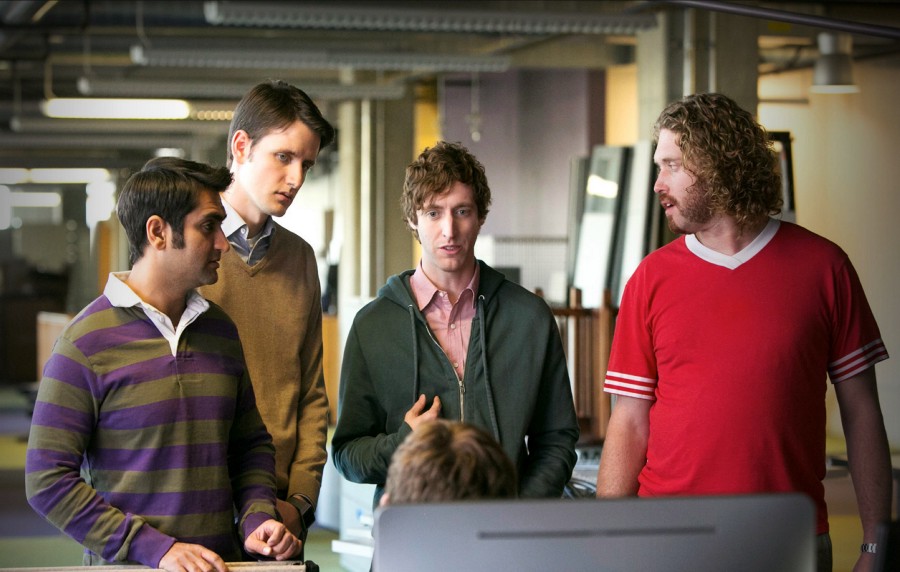
Although certain TV portrayals are clearly unrealistic or over the top for comedic value, this episode dealt with a lot of issues we face in our industry.
Perhaps the central theme of the episode was the lead investor gaining control of the board and forcing the founder, Richard, into a CTO position.
Control issues like this happen all the time, although it’s rare for it to happen as early in a company as “Pied-Piper” which is about to raise 5 @ 50 million — when a company is seen doing well and has a lot of momentum and excitement behind it early, the founders usually wouldn’t give up that control to an investor. This situation is more rare today, versus twenty years ago where investors typically had more power over entrepreneurs. It was a rare mistake Richard made to accept terms that created an outside board that could replace him as CEO. But at the appropriate time, funds do often try to bring in experienced leadership, and when they get control they often force it.
Some funds are seen to be on one extreme and generally to oppose replacing founders (such as Founders Fund; their name relates to how they want to stand up for founders). Founders Fund believes that truly great companies that keep growing for a long period do so in part by keeping their founders as leaders. Others, such as Sequoia, were historically known for firing the CEO if they believe it is best for the company [a couple of the people who started Founders Fund for example had been fired as CEOs by Sequoia in the past]. Of course, these are sophisticated funds that have done very well and both of them have been on both sides of these issues.
The portrayal of the founder’s ego and suffering in this situation was apt. We’ve seen far worse — intense people sometimes have their lives and identity wrapped up as CEO of the company and perhaps 10% of them are unbalanced, much worse than was portrayed here — not only intense but also psychologically troubled people seem to be attracted at a higher rate to being a founder. In the worst situations it’s not unheard of to have talk of suicide or violence around these issues, and in any situation it’s extremely difficult for a founder. The question of how a team will stand with or against the founder in these situations is also common.
The lawyer’s betrayal of the founder when Richard got emotional and threatened to sue the investor was interesting. Many lawyers are clear they serve the company and not the founder, but others would have been loyal to the founder and resigned if necessary, as they would want other founders to trust them and hire them based on their perceived loyalty in an industry that values the entrepreneur and that is mostly run by other founders. In the episode, the company lawyer surprised Richard by going against him based on his ‘duty to the company’ and was showing that he cared more about what the investor thought about him long-term and was placing his chips there… this wouldn’t always be the best strategy for a lawyer in real life, as founders wield a lot of power in SV and tend to be loyal to each other. But it’s not unrealistic.
The most unrealistic scenes were around the amusing and egotistical speech about firing of a whole group at “Hooli” by their out of control founder, who pretended he was being humble while blaming them and trying to steal some of their upside. Ego issues are definitely an issue with successful leaders and people love to mock them, but no self-respecting engineers would stay and work for a company with a leader that was that obviously out of control. That said, many successful companies in our industry do probably have a lot of inefficient programs and groups they could benefit by cutting, even if it’s not as extreme as people sitting around on the roof hanging out.
The final scene of the show was my favorite — there are a lot of really amazing, successful people around Silicon Valley who we can learn from when we open up to the fact that we don’t know everything. And in real life we mark the passing of one of the great entrepreneur coaches with the memorial service of Bill Campbell today, a kind and insightful man who shared his wisdom and inspiration with many.
When the show’s potential mentor-CEO came up the skepticism of the team making fun of his previous entrepreneurial and leadership success and cancer research efforts was right on for the cynicism of many in SV, and how they might react at first to a new senior person or “outside wisdom”. Being a great founder or early team member is a difficult dialectic — you have to be a bit overconfident and a big ego isn’t always a bad thing — to change the world requires pushing really, really hard and believing you and your team know something others don’t. But the other extreme is also important to embrace — sometimes, experienced leaders are really helpful, and founders can do best by putting their egos aside and finding ways to learn.
I didn’t like how the CEO was forced on the company — that shows an investor not adept enough to manage the company from the same side of the table as the entrepreneurs — but the nod to experience and to the team learning to grow from others who have been successful is great.

